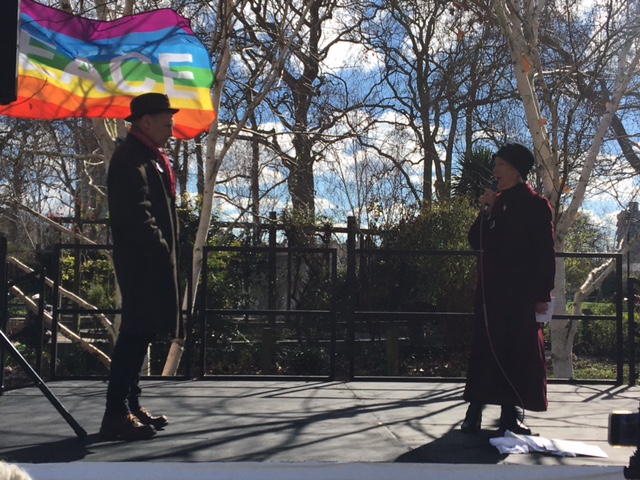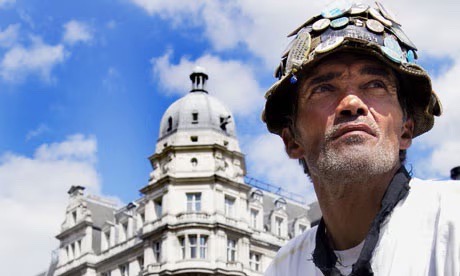Taking a stand usually means that you are going to oppose authority, or conventional wisdom, or the rules of the family, group or society to which you belong. In other
words, it is going to make you unpopular, and you risk being rejected by those you love or need. At the extreme it may mean you risk imprisonment.
How can you summon up the strength to do that?
The French word for the heart, coeur, is the same as the word for bravery, courage. In English we talk of someone having the ‘heart of a lion’. It is certainly true that when we do decide to take a stand, our brains are busy saying:
“Are you sure you want to go through with this? It probably isn’t going to end well, you know. You could run away…now!”
And our hearts beat much, much faster.
If we overrule these thoughts, if we take a stand and accept the risk of trouble, what is it that makes us do it?
It can’t be the brain because the brain is trying to stop us and protect us.
No, it is a sense of justice, a need to oppose what is wrong and insist on what is right – whatever the cost to us personally.
So, as we take a stand, we are asserting that there is something more important than our own comfort and safety – it may be a principle, it may be the protection of others, or of the planet. All of them amount to a reaching out beyond ourselves.
And that is always the work of the heart.
This brings us to Brian Haw – a British peace campaigner who lived for almost ten years in a peace camp in Parliament Square in London, in protest against UK and US foreign policy. He became a symbol of the anti-war movement against the policies of both the United Kingdom and the United States in Afghanistan and later Iraq.
At the 2007 Channel 4 TV Political Awards he was voted Most Inspiring Political Figure. He died in June 2011.
His friend Sir Mark Rylance unveiled a statue to him on Sunday March 16th 2025 for
his incredible courage in keeping up this protest for 10 years and I was asked to say a few words as part of the event. Brian Haw will now stand on the wall of an old hospital for shell shocked soldiers facing the big guns of the Imperial War Museum. “Stop Killing the Kids” will be his call.

So, coming back to you when you next take a stand, here are some tips that may be useful:
1. Taking a stand may make you unpopular with some people, and they won’t like you for it, so you will have to be courageous.
2. You can only do it for something important that you believe in.
3. Don’t try to judge it by results! Do it only because you believe in it.
4. You will probably have to persist, much longer than you wanted to… so you have to stick to it.
5. And most important, if there’s something you believe in passionately – don’t die without taking a stand for it.
The heart never seeks to insulate the person from others, from communication, from empathy and from love. On the contrary, it sees and understands the needs of others and of crucial principles like fairness, truth and conscience.
So, when we hear that faint whisper in the ear which we know is right, but which demands of us more than we really feel we can do, then we know it is the heart speaking. We can stop listening; we can ignore what it says, we can carry on with our normal life – that’s what most of us do most of the time.
But the people we admire, the people who have changed the world for the better, like Brian Haw, have not done that.
They have accepted the challenge of the heart and taken a stand.
Brian Haw Photo credit: Sarah Lee, The Guardian
